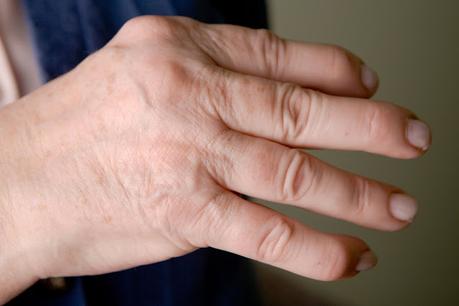
Psoriatic Arthritis
Psoriatic arthritis is a chronic inflammatory condition that affects individuals who have psoriasis, a skin disorder characterized by red, scaly patches on the skin. Psoriatic arthritis typically develops in people who already have psoriasis, but in some cases, joint problems can occur before the skin symptoms become evident. This condition can cause pain, swelling, and stiffness in the joints, leading to significant discomfort and reduced mobility for those affected.
The exact cause of psoriatic arthritis is unknown, but it is believed to involve a combination of genetic and environmental factors. Certain genes may make individuals more susceptible to developing the condition, and triggers such as infections, injuries, or stress can activate the immune system, leading to inflammation in the joints. Psoriatic arthritis is an autoimmune disease, meaning that the immune system mistakenly attacks healthy cells and tissues.
The symptoms of psoriatic arthritis can vary from person to person, but common signs include joint pain, stiffness, and swelling, especially in the fingers and toes. In some cases, the condition can affect larger joints such as the knees, ankles, or spine. Other symptoms may include fatigue, nail changes (such as pitting or separation from the nail bed), and eye inflammation. Psoriatic arthritis can have a significant impact on daily activities and quality of life if left untreated.
Early diagnosis and treatment are crucial in managing psoriatic arthritis effectively. Rheumatologists are typically the specialists involved in diagnosing and treating this condition. They may perform a physical examination, review medical history, and order tests such as blood tests, X-rays, or MRI scans to assess joint damage and rule out other conditions. Treatment options for psoriatic arthritis include nonsteroidal anti-inflammatory drugs (NSAIDs) to relieve pain and inflammation, disease-modifying antirheumatic drugs (DMARDs) to slow down the progression of the disease, and biologic medications that target specific parts of the immune system to reduce inflammation.
In addition to medical treatment, lifestyle modifications can also play a significant role in managing psoriatic arthritis. Regular exercise, such as low-impact activities like swimming or cycling, can help improve joint flexibility and reduce pain. Physical therapy and occupational therapy can provide strategies to manage daily activities and minimize joint strain. Maintaining a healthy weight, getting enough rest, and managing stress levels are also important.
While there is currently no cure for psoriatic arthritis, with the right treatment approach, most individuals can manage their symptoms effectively and lead fulfilling lives. It is important for individuals with psoriasis to be aware of the potential risk of developing psoriatic arthritis and seek medical attention if they experience joint pain or swelling. Early intervention can help prevent or minimize joint damage and improve long-term outcomes.
Psoriatic arthritis is a chronic inflammatory condition that affects individuals with psoriasis. It causes joint pain, swelling, and stiffness, and can significantly impact daily life if left untreated. Early diagnosis and treatment, including medications and lifestyle modifications, are essential in managing the condition and improving quality of life for those affected. By working closely with healthcare professionals, individuals with psoriatic arthritis can find effective strategies to minimize symptoms and maintain their overall well-being.
